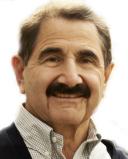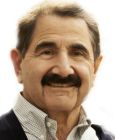
Sleep
Psychosis in Adolescence Caused by Sleep Deprivation
A puzzling psychiatric disorder has links to a very common condition.
Posted March 22, 2018
Several years ago, a seventeen year-old rising high school senior came for follow-up after a brief psychiatric hospitalization one early September.
Timothy, Tim Terrific his buddies nicknamed him because of all his in-school and extracurricular activities, was a gifted photographer for the school newspaper. His work had been featured in local galleries and Tim had already been courted by several of the top graphic-arts colleges.
Tim’s school tapped him to attend a regional four-day intensive program in photography led by a formidable group of artists, to be held in late August at a small college two hours away. As the date approached, Tim became increasingly excited, enough so that he had trouble settling down to sleep.
The program kicked off with a Wednesday evening sign-in and barbecue for students and faculty to meet and mingle. Tim left home early Wednesday afternoon but instead of arriving with lots of time to get settled, he was trapped in traffic for hours behind an overturned tanker truck that had closed the interstate. By the time he made it to the college, it was dark and the reception desk had long-since closed. Eventually campus police told Timothy where he could stay, but by then he was too famished and exhausted to sleep much at all. He slept through his alarm the next morning then set off in a fog to find the group.
Thursday went terribly. Despite several mugs of coffee, Tim could barely concentrate. By midday he began feeling that people were staring at him because he was yawning so frequently. Later, after dinner when the students broke up into small groups to work on a project, Tim felt that no one liked his ideas. Over-caffeinated, overtired and feeling alone, Tim could not sleep at all that night.
By Friday Tim felt his fellow students were whispering about him behind his back. That night he got so upset he told his roommate that he wished had never been born. Not surprisingly, the roommate called an administrator who asked permission to speak to Tim’s parents, whereupon Tim lashed out uncontrollably, yelling, “I’d rather be dead then that.” Soon the authorities rushed in and took Tim to the emergency room where, after a urine toxicology screen for drugs of abuse was negative, the diagnosis was paranoid psychosis. By the time Tim's parents arrived early Saturday morning he had slept barely two hours in three days. Terrified about what was happening to their son, Tim’s parents admitted him to a psychiatric hospital near home, where Tim was given a sedating antipsychotic after which he slept for eighteen of the next twenty-four hours. He awoke Monday morning feeling normal, remembering only bits and pieces about the traffic jam and the conference. When confronted with his statement about wanting to die, he said, “I would never do that. I must have been out of my mind.” The hospital let Tim go the next day with the proviso that he be evaluated psychiatrically within a few days.
I met Timothy two days after hospital discharge. By then he had mostly put the episode out of his mind, and was irritated about having to tell his story yet again to another person. He said he had been sleeping fine without medication, although his parents piped in that Tim had been sleeping more than twelve hours a day since hospital discharge. Had they not awakened him for the day’s psychiatric appointment, they were sure he would have slept through it.
Other than being tired and irritable, Tim was a normal teenager whose biggest preoccupation was the fear of being psychiatrically labeled. All he wanted was to be cleared to return to school which was starting later that week. Tim dutifully reconstructed the experiences of the preceding week, dismissing the paranoia as an isolated instance caused by stress. Eschewing the need for psychiatric medications or therapy, Tim agreed to follow-up the following week where all remained well. His parents were concerned that Tim was always sleeping in so late on Saturdays and Sundays. His usual pattern was to go to bed at midnight on weekend nights and, if not aroused by anyone, sleep well into the afternoon. Tim’s parents thought sleeping so much was unhealthy so they typically awakened him weekend mornings between nine and ten.
At that point the diagnosis remained unclear, seeing that Tim had no history of anything approaching psychosis, although sleep issues were everywhere in the story. Adderall-sharing was common in his school milieu, but Tim said he didn’t like how it made him feel— hypervigilant and sweaty—so he tried it only once. The parents confirmed that Tim had lots of friends, and had no history of social anxiety or depression. However, Tim’s sleep hygiene was poor; between all the activities and homework as well as coping with 7:30 AM homeroom, Tim rarely slept more than six or seven hours on school nights. I advised Tim and his parents to watch his stimulus level before bedtime and counseled him to try and sleep eight, better yet nine hours on school nights. I also told the parents to let Tim sleep in on weekends, as he was trying to compensate for the sleep debt accumulating during the week.
I heard nothing more for two years when Tim and his family were stranded at Gatwick Airport for three days after the failed 2008 Christmas shoe-bombing. Amid the hubbub of camping out like refugees, Tim had several sleepless nights and by the time he got home sleep-deprivation worsened by time-zone change change precipitated a paranoid episode eerily similar to the one that brought him for treatment in 2006. All it took to treat the condition was two nights of a sedating medicine, after which Tim returned to his normal self.
Discussion:
The extent and degree of sleep deprivation among teenagers is deeply troubling. Sleep deprivation is every bit the public health menace of cigarette-smoking. Even more frightening is the denial or passivity with which people pooh-pooh sleep deprivation as part and parcel of modern-day living, while it causes declines in cognitive functioning, vehicle accidents (including bus and tractor-trailer drivers and commuter train conductors), and can cause or worsen every known psychiatric disorder.
A widely read New York Times Magazine article Why Are More Teenagers than Ever Suffering From Severe Anxiety? completely ignored sleep deprivation as a factor in the epidemic of anxiety disorders that is disabling thousands of today’s teenagers. Nor did the article mention the rampant psychostimulant medication misuse and abuse among teenagers, whose sleep deprivation symptoms often present with symptoms of attention deficit disorder for which Adderall and Ritalin, medications that disrupt sleep-wake cycles and evoke anxiety reactions, are commonly prescribed. Ask teenagers about it and they'll confirm the commonness of pill-swapping and pill-sharing.
Science has convincing evidence that the sleep-wake cycle in teenagers is phase-advanced, meaning that teenagers feel drowsy and fall asleep significantly later than adults. The notion that making teenagers arise early for school prepares them for the real world completely ignores sleep researchers’ findings about the adolescent mind and brain. That belief is akin to arguing that depriving plants of water during their early development better prepares them to survive drought later on in life. According to researchers, sleeping in on weekends is better than nothing, but in itself it is not enough to restore normal circadian rhythm.
Does every sleep-deprived teenager develop psychosis like Tim? No, he was particularly vulnerable; but then again the adolescent brain is a very vulnerable organ. It is well-established that sleep deprivation worsens, and as Tim’s case shows, can cause a serious psychiatric disorder. It is so much better, humane and cost-effective to prevent psychiatric illness in teenagers by attending to sleep hygiene, rather than spend tens of thousands of dollars, as affluent families are doing, to rehabilitate anxiety disorders in teenagers associated with sleep deprivation. Age-appropriate high school start times, attention to overscheduling, and dispelling myths about teenagers’ laziness, would unquestionably prevent needless suffering.



